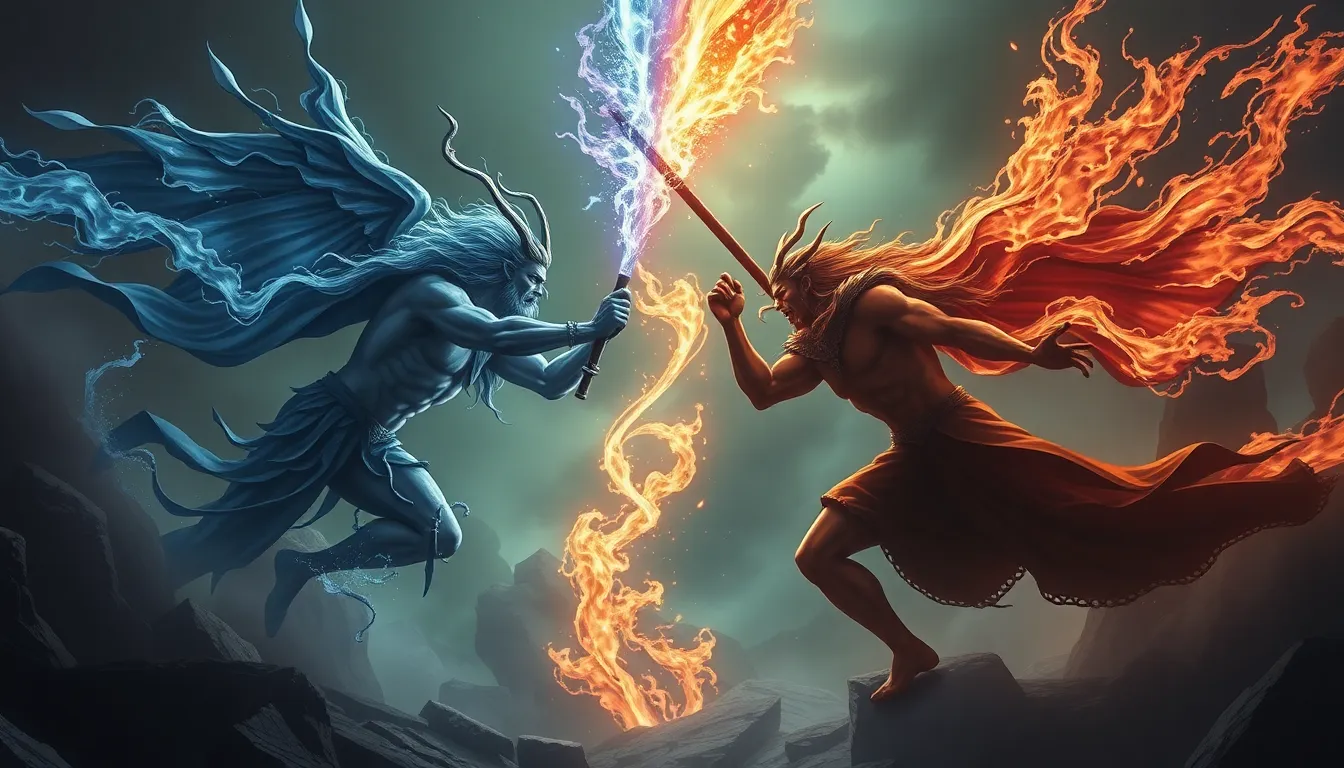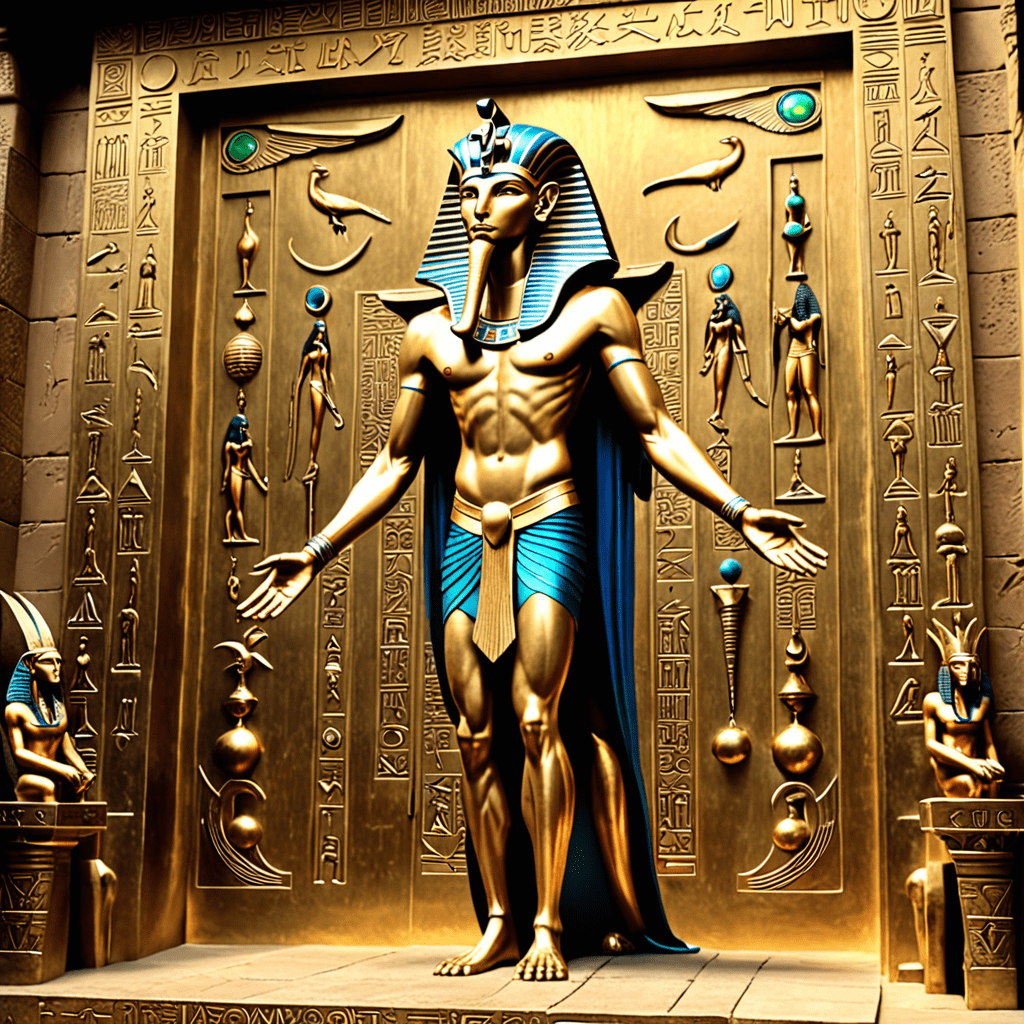The Heart of a Goddess: Celebrating Feminine Love in Myths
Introduction: Understanding Feminine Love in Mythology
Feminine love in mythology encompasses a wide range of emotions, from nurturing and compassion to passion and desire. It represents not only romantic love but also maternal love, friendship, and the bond between sisters. Throughout history, goddesses have embodied these qualities, providing powerful examples of love’s multifaceted nature.
Exploring the stories and attributes of goddesses allows us to understand how cultures have valued feminine love and the roles women have played in shaping these narratives. From ancient civilizations to modern interpretations, the significance of these divine figures continues to resonate today.
The Archetype of the Goddess: A Historical Perspective
The goddess archetype has appeared in various forms across cultures worldwide, portraying different aspects of femininity and love. From the nurturing mother to the fierce warrior, the goddess represents a spectrum of traits that reflect the complexities of womanhood.
Historically, the roles of feminine deities have evolved, with many goddesses transitioning from powerful figures associated with nature and fertility to more domestic representations in later cultures. This evolution highlights the changing perceptions of women and their roles in society.
Venus and Aphrodite: Symbols of Love and Beauty
In Roman mythology, Venus is the goddess of love, beauty, and desire, while her Greek counterpart, Aphrodite, shares many of the same attributes. Both goddesses are celebrated for their enchanting beauty and their ability to inspire love in others.
- Attributes: Venus and Aphrodite are often depicted with symbols such as doves, roses, and myrtle, which emphasize their connection to love and beauty.
- Stories: Their myths often involve themes of romance, jealousy, and the consequences of love, illustrating the power and complexity of feminine love.
These goddesses remind us that love can be both uplifting and tumultuous, reflecting the dual nature of human relationships.
Isis: The Eternal Mother and Protector
Isis, a prominent goddess in ancient Egyptian mythology, embodies maternal love, loyalty, and protection. She is often depicted as a nurturing figure who cares for her son, Horus, and is known for her powerful magic and wisdom.
The myths surrounding Isis highlight her role in the afterlife and resurrection, particularly through the story of her husband, Osiris. After his death, Isis’s unwavering devotion and love enabled her to resurrect him, showcasing the theme of eternal love that transcends even death.
Kuan Yin: The Bodhisattva of Compassion
Kuan Yin, a beloved figure in East Asian Buddhism, represents unconditional love and compassion. Known as the Goddess of Mercy, she is revered for her ability to alleviate suffering and provide solace to those in need.
Kuan Yin’s influence extends beyond spirituality; she embodies the nurturing aspects of feminine love and serves as a model for compassion in action. Her stories inspire many to cultivate empathy and kindness in their own lives, emphasizing that love is an active force for healing.
Brigid: The Goddess of Inspiration and Hearth
In Celtic mythology, Brigid is a multifaceted goddess associated with love, fire, fertility, and inspiration. She is celebrated during Imbolc, a festival that marks the beginning of spring and the awakening of the earth.
- Significance: Brigid’s dual role as a goddess of both hearth and inspiration reflects the importance of love in community and creativity.
- Celebrations: Festivals honoring Brigid often include rituals that promote love, fertility, and the arts, reinforcing her connection to both domestic and creative spheres.
Brigid’s legacy continues to inspire those who seek to balance their creative passions with nurturing relationships.
Lakshmi: The Goddess of Wealth and Prosperity
Lakshmi, the Hindu goddess of wealth, fortune, and prosperity, also embodies love in her connections with devotion and abundance. She is often depicted seated on a lotus flower, symbolizing purity and spiritual enlightenment.
In Hindu mythology, Lakshmi’s narratives emphasize the interplay between love and prosperity, highlighting that true wealth comes from love and devotion:
- Devotion: Lakshmi is revered during festivals like Diwali, where her blessings are sought for both material and spiritual abundance.
- Love and Relationships: She teaches that love fosters growth and prosperity in both personal and communal aspects of life.
The Duality of Love: Goddesses of War and Love
Some goddesses, such as Athena and Durga, embody both love and strength, illustrating the duality of feminine love. Athena, the Greek goddess of wisdom and warfare, represents strategic love — the love of protection and justice. Durga, in Hindu mythology, symbolizes fierce maternal love, as she battles evil to protect her children.
- Balance: These goddesses show that love can be fierce and protective, as well as gentle and nurturing.
- Feminine Power: Their stories encourage a re-evaluation of love as a powerful force that can drive both creation and destruction.
Modern Interpretations: Feminine Love in Contemporary Culture
Ancient goddess figures continue to influence modern representations of love and femininity. Feminist interpretations of these myths have emerged, reclaiming the stories of goddesses and highlighting their significance in contemporary discussions about women’s rights and empowerment.
In literature, art, and popular culture, the values embodied by these goddesses inspire new generations to explore themes of love, strength, and resilience. The archetypes of goddesses have evolved, but their core messages of love and empowerment remain relevant.
Conclusion: The Enduring Legacy of Feminine Love in Myths
Celebrating feminine love through mythology allows us to connect with timeless themes of compassion, strength, and nurturing. The stories of goddesses like Venus, Isis, Kuan Yin, Brigid, Lakshmi, and others reveal the profound impact of love on human relationships and society as a whole.
As we reflect on these deities and their diverse representations of love, we recognize the lessons they impart: love is multifaceted, powerful, and essential to our existence. The enduring legacy of feminine love in myths continues to inspire and guide us in our pursuit of connection and understanding in the modern world.



